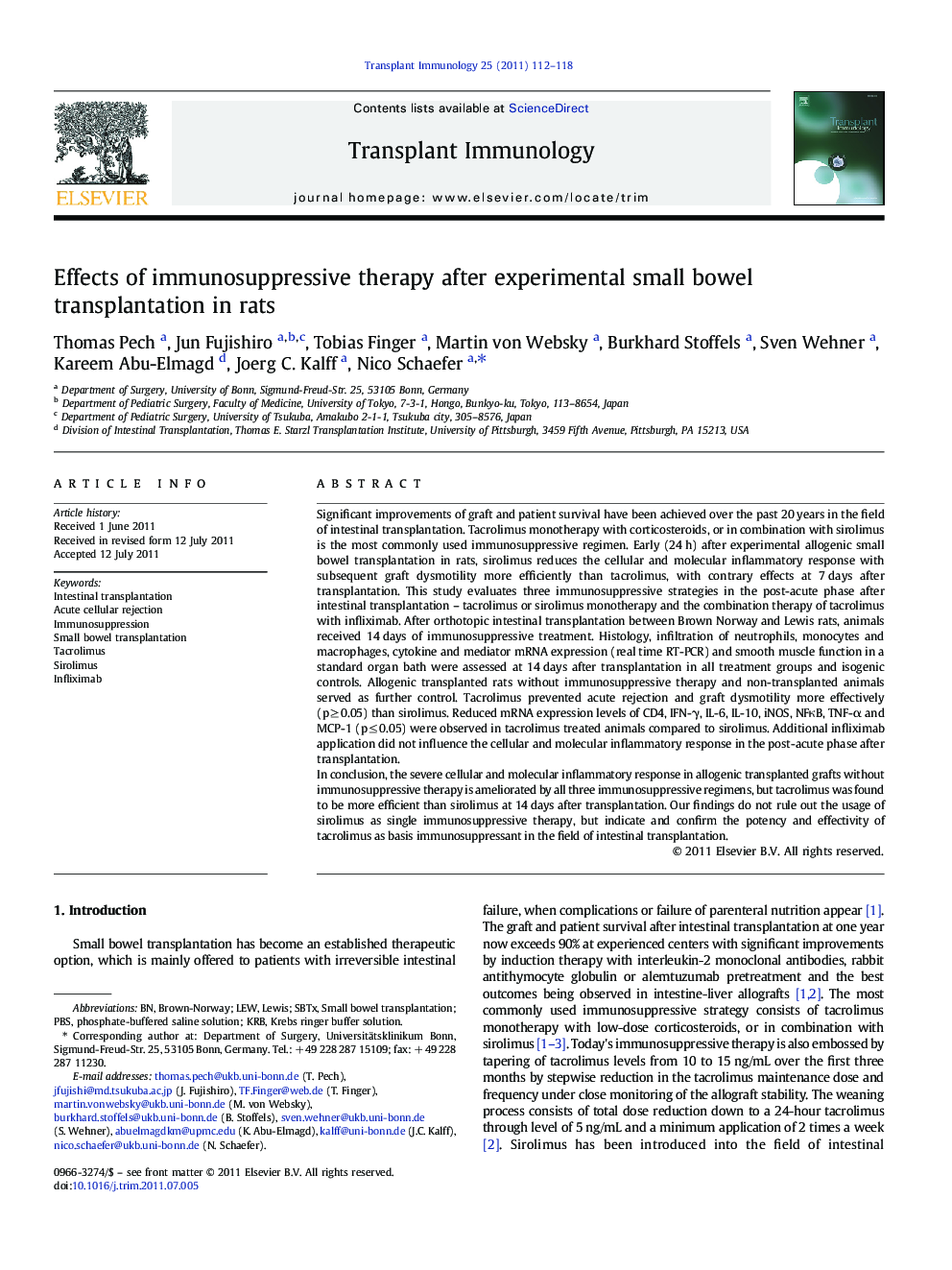| Article ID | Journal | Published Year | Pages | File Type |
|---|---|---|---|---|
| 3392272 | Transplant Immunology | 2011 | 7 Pages |
Significant improvements of graft and patient survival have been achieved over the past 20 years in the field of intestinal transplantation. Tacrolimus monotherapy with corticosteroids, or in combination with sirolimus is the most commonly used immunosuppressive regimen. Early (24 h) after experimental allogenic small bowel transplantation in rats, sirolimus reduces the cellular and molecular inflammatory response with subsequent graft dysmotility more efficiently than tacrolimus, with contrary effects at 7 days after transplantation. This study evaluates three immunosuppressive strategies in the post-acute phase after intestinal transplantation – tacrolimus or sirolimus monotherapy and the combination therapy of tacrolimus with infliximab. After orthotopic intestinal transplantation between Brown Norway and Lewis rats, animals received 14 days of immunosuppressive treatment. Histology, infiltration of neutrophils, monocytes and macrophages, cytokine and mediator mRNA expression (real time RT-PCR) and smooth muscle function in a standard organ bath were assessed at 14 days after transplantation in all treatment groups and isogenic controls. Allogenic transplanted rats without immunosuppressive therapy and non-transplanted animals served as further control. Tacrolimus prevented acute rejection and graft dysmotility more effectively (p ≥ 0.05) than sirolimus. Reduced mRNA expression levels of CD4, IFN-γ, IL-6, IL-10, iNOS, NFκB, TNF-α and MCP-1 (p ≤ 0.05) were observed in tacrolimus treated animals compared to sirolimus. Additional infliximab application did not influence the cellular and molecular inflammatory response in the post-acute phase after transplantation.In conclusion, the severe cellular and molecular inflammatory response in allogenic transplanted grafts without immunosuppressive therapy is ameliorated by all three immunosuppressive regimens, but tacrolimus was found to be more efficient than sirolimus at 14 days after transplantation. Our findings do not rule out the usage of sirolimus as single immunosuppressive therapy, but indicate and confirm the potency and effectivity of tacrolimus as basis immunosuppressant in the field of intestinal transplantation.
► Individualized immunosuppression after intestinal transplantation improved outcomes. ► Rejection is the main cause of graft loss. ► Immunosuppression is mainly based on tacrolimus and/or sirolimus. ► Tacrolimus led to reduced molecular inflammation and improved graft motor function. ► Tacrolimus prevents acute rejection more efficiently than sirolimus.
